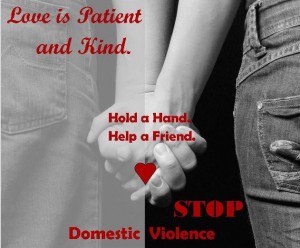The Invisible Bisexual is a new contributor on my blog. She is a real person, sharing honest comments about her experiences as a closeted bisexual. ~Loraine Hutchins
I’m so confused, but it’s not because I’m bisexual.
It’s this heated debate among the LGBTQ demographic about the use of the word “bisexual” that makes my head hurt. This is supposed to be my “community” of allies, yet the stigma against bisexuality is still so strong that many continue to shun the Bi “label” (even many bisexuals) while trying to justify it with twisted logic and semantic gymnastics.
“It’s too binary,” they insist. What kind of criticism is that? We live in a binary world: female/male, yin/yang, gay/straight or the numbers 1/0 used for computing, for example. They claim the word “bisexual” offends and excludes those who want to define themselves with some other label like queer, fluid or pansexual, and that it erases transgender people. Never mind that transgender and bisexuality mean two different things: gender identity and sexual orientation. And many trans people identify as bisexual.
If these Bi re-branders were honest, they’d have to admit that they don’t want to identify as bisexual because they don’t want to attract the painful stigma attached to bisexuals by both gay and straight people. Could this be internalized biphobia?
If these Bi re-branders were honest, they’d have to admit that they don’t want to identify as bisexual because they don’t want to attract the painful stigma attached to bisexuals by both gay and straight people.
Statistically, bisexuals represent about half of the LGBTQ demographic. But instead supporting bisexual pride with the majority of members among our LGBTQ cohort, many of our queer community continue to erase, conflate, obfuscate and denigrate bisexuality.
The National Gay and Lesbian Task Force is a good example with its 40 years of Bi erasure. This year on the 15th Annual Celebrate Bisexuality Day (September 23, 2014), NGLTF posted an anti-bi blog by Evangeline Weiss, their Leadership Programs Director. Could this be institutional biphobia?
Weiss wrote, “…My gender non-conforming, queer and/or genderqueer lovers, colleagues, and friends often feel trapped by the prison of the binary way our language designates gender. So I’ve made a decision. I’m no longer going to lift up and claim a concept painful to others as part of my identity…I’m ready to say bye bye to the word bisexuality.” Please stop conflating gender identity and sexual orientation, I want to scream! Even worse, her comments were illustrated by an image of a button that lists “Gay, Straight or Wibbly-Wobbly Sexy-Wexy” as choices. WTF?
I’d like to feel respected and supported as a bisexual by all queer rights organizations.
What in these comments supports bisexual awareness or celebrates Bi pride? The button certainly conveys the stigma directed at bisexuals as being lascivious, over-sexed and confused. I’m so offended! This is why I choose to remain invisible and stay in the closet. Sadly, this kind of warped reasoning is not surprising coming from an employee of a 40-year-old gay rights organization that had yet to change its name to reflect approximately 50% of the people it purports to represent.
However, after this recent slap in our face, NGLTF has made some progress. The Task Force waited until after Celebrate Bisexuality Day to announce it had changed its name to “National LGBTQ Task Force.” Well, isn’t that nice? But I have to ask, ‘How about owning your years of Bi erasure and your biphobia? How about an apology?’ Hell, I’d be happy to see some advocacy and articles about bisexuality on the Task Force homepage. I’d like to feel respected and supported as a bisexual by all queer rights organizations.




